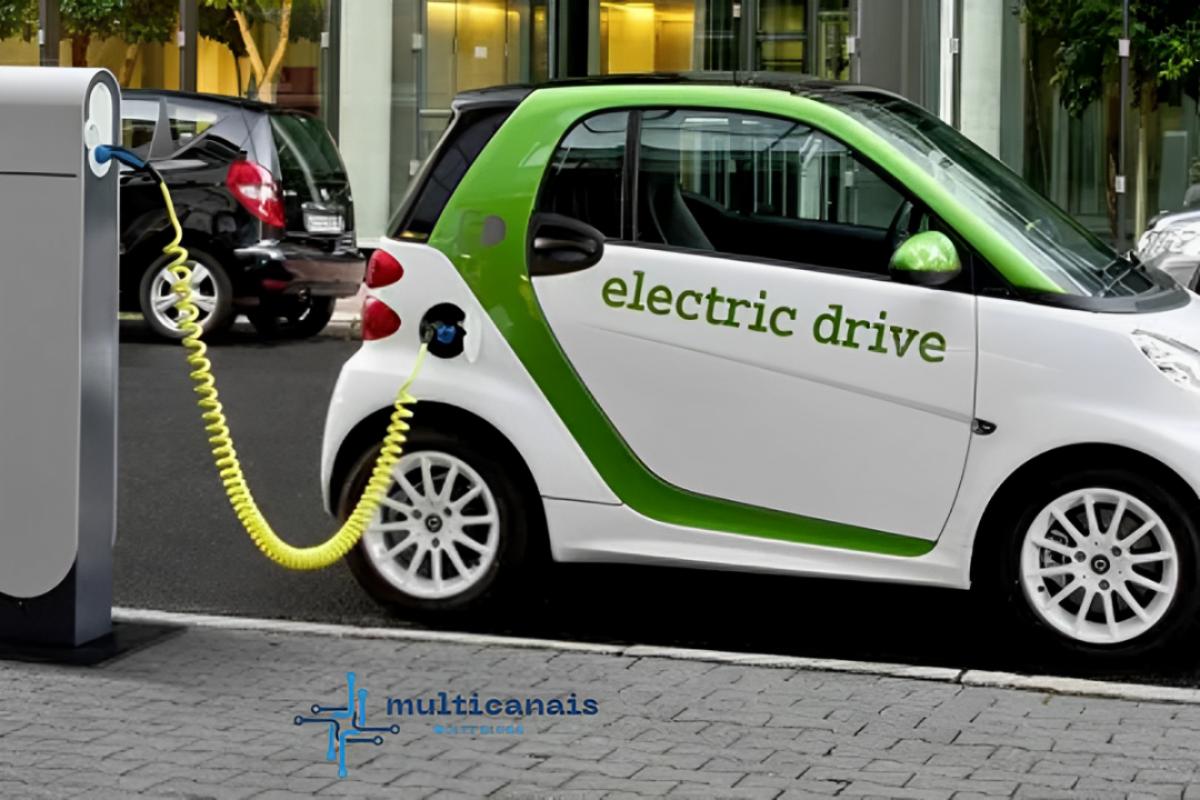Japan is at the helm of the seismic shift in the automobile world, or rather the tsunami of change it is bringing about. This technologically advanced country and environmentally conscious one has brought electric cars to life as a symbol of sustainability and innovation-a green revolution that can redefine how people commute.
Japanese Electronic Cars Tackle Global Competition
A country like Japan has always been at the forefront of automobile innovation, and the adoption of electric vehicles in it also won’t prove to be a departure from the trend.
The demand for eco-friendly means of transportation across the world and the unprecedented traction that an electric car is gaining in the Japanese market are due to government-backed incentives, reduced taxes on EVs, and subsidies for installing home chargers.
This is because air pollution continues to be a problem in cities like Tokyo and Osaka. Their zero-emission operation perfectly coincides with Japan’s agenda of becoming carbon neutral by 2050.
Why Electric Cars Matter in Japan
The growing electric car in the Japanese market is not only a short-term phenomenon but rather an outgrowth of urgent environmental and economic needs. In fact, despite reliability, conventional combustion engines are the prime contributors to the problem of greenhouse gases, while electric cars pride themselves on delivering clean energy efficiency, noise pollution reduction, and lower maintenance costs.
This dependence on imported fossil fuel has been a century-long pressure on the Japanese economy. Electricity generated from renewable energy produced domestically can power electric cars, thereby reducing the import of oil and stabilizing energy costs. Therefore, this two-layered environmental and economic benefit propels the nation towards the green revolution.
Pioneers in Japan’s EV Industry
Had it not been for the innovation of the giants in the local automotive market, the electric car would not have been where it is today in the Japanese market. Companies like Nissan and Toyota are the standards, as can be witnessed by the revolutionary models such as the Nissan Leaf and Toyota bZ4X that demonstrate premium-level battery technology and futuristic designs.
Japanese manufacturers have, in their turn, experienced a presence made by entrants from abroad, most prominently Tesla. These foreign entrants have helped raise awareness about electric cars in Japan. They have spurned healthy competition among the manufacturers to innovate and come up with new offerings as consumers change their preferences.
Difficulties Hindering Full Adoption of EVs
Nevertheless, while undoubtedly making strides, the electric car is still meeting quite a few hurdles in the Japanese market. The major challenge lies in a lack of wide-ranging charging infrastructure; although a growing number of fast-charging stations are popping up in the urban regions, coverage in the rural areas is not that strong.
High acquisition costs for electric vehicles again discourage many consumers from purchasing them. Since direct operational cost savings usually offset the associated high prices, this is a pretty typical blocker to middle-class families. Moreover, gasoline cars and hybrid vehicles have been with us for several decades, thereby fostering consumer inertia and slowing all-electric variants.
Steps Towards Electric Future
Despite all these hurdles, the electric car cannot be slowed down in Japanese markets. The Japanese government continues to invest heavily in networks to eventually make EV charging as convenient to the consumer as refueling a gas-powered vehicle. Moreover, the latest prototypes in battery technology will continue to bring down manufacturing costs while raising the driving range.
Automakers also play their part. Nissan can now unveil new EV models even more reasonably priced, targeting first-movers. Similarly, Toyota exerts more effort in making advancements in hydrogen fuel cell technology as well as electric cars and thus further opens up sustainable transport choices.
How Electric Cars are Revolutionizing the Economy of Japan
But ripples from the positive impact of the electric car on the Japanese market go far beyond environmental profit. The EV revolution fuels job creation not merely in this or that, whether battery production, the development of software, or renewable energy but among startups and large companies coming together to innovate. This spots Japan as a leader in the global EV market.
In addition, the steps of Japan toward electric vehicles are building stronger international alliances. From sourcing rare earth materials to exporting EV technology, the country is building its economic alliance with the major world players.
The Future of Electric Cars in Japan
The Japanese market holds a rather bright future for electric cars. With the promise of shared electric vehicles, autonomous driving technologies, and renewable-powered charging stations, the transport scene is all set to revolutionize. This has great future sales growth ahead as the demand for electric cars by the younger, environmentally conscious generations surges through the roof.
The combination of new governmental policies and private sector inventions will also put electric vehicles at the core of Japan’s transport policy. The government aims that by 2030, new gasoline cars should not be sold and replaced entirely by hybrids and EVs.
FAQS
How does Japan’s government support the adoption of electric cars?
Japan’s government supports electric cars through incentives like tax reductions, subsidies for home chargers, and investments in charging infrastructure, aligning with its goal of achieving carbon neutrality by 2050.
What makes cities like Tokyo and Osaka suitable for electric vehicles?
Cities like Tokyo and Osaka are suitable for electric vehicles due to their dense urban populations, robust infrastructure, and the pressing need to address air pollution through zero-emission transportation solutions.
What future technologies will shape the electric car market in Japan?
Future technologies shaping Japan’s electric car market include solid-state batteries for longer range and faster charging, autonomous driving systems, renewable energy-powered charging stations, and advancements in hydrogen fuel cell technology.
Conclusion: A Green Revolution in Motion
Electric cars in the Japanese market are more than just a technological breakthrough; they mirror the whole commitment of the country to sustainability and innovation.
They change the economic structures, reduce carbon emissions, boost the economy of the nation, and so contribute to the nation’s overall evolution.
The whole world is now watching in awe at Japan, driving towards a greener future and learning from its success. This glorious industry is now under the consumer and stakeholder paradigm; embrace this revolution—let’s drive toward a cleaner, more sustainable tomorrow.
More Read: Electric Dreams Realized: Plug-In Car Zones in Glendale

